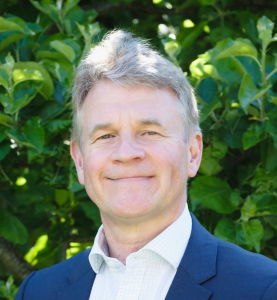Do you think taming a tiger is scary?
Communitatis enables leaders of life-changing organisations to address complex challenges, embrace far-reaching opportunities, optimise their organisation’s performance, and improve impact.
This article recounts the story of why and how Communitatis was formed.

Graham Beech
21 November 2023
Graham is Communitatis’ founder and director. He is a highly experienced strategy consultant who works with charity, public and commercial sector clients in healthcare, justice and social care.
A journey of discovery
What follows is a tale in which the unknown lurks around every corner and people risk being devoured at every meal. Happily, in this story tigers are left to roam freely, limbs remain mainly intact and it was while travelling along along the path of this thrill-laden journey, that Communitatis was born.
The blog is written on behalf of those of us who understand that whilst it might appear that Taming a Tiger Is Scary (TATIS for short), that there are many other ‘TATIS’ shaped challenges to grapple with on journeys of discovery like this.
Death-defying pursuits
Without delving too deeply into the demography, I imagine the number of people who have discovered their life’s purpose in the taming of tigers is relatively small. After all, if your reason for being (or your ‘ikigai’ as some people refer to it) is the thing that gets you up in the morning, why choose something that might result in your being eaten for breakfast?
Whilst this simple kind of logic might explain why so few people choose to become part of the tiger taming fraternity, it does not explain why other people pass over such death-defying pursuits in favour of something even more adventuresome.
Meetings with mentors
Like many people who set off on a journey of discovery, I had a strong sense of what I wanted to do and why what I wanted to do mattered.
In order to hone my thinking, I reached out to some very wise and clever people who I knew would give me a straight answer to the simple question: On a scale of one to 10 just how crazy is this business idea?
These were big thinkers with small egos.
Whilst their professional backgrounds were diverse (like me, they had worked at senior levels across a variety of sectors – private, public and charity), we were all united in having focused on so-called ‘wicked problems’ in areas of health, justice and social care in our careers to date.
Between us we had decades of experience of working with deep-rooted complexity, and the fundamental aims of our exploratory conversations were to:
- Explore what the world we all operated in needed
- Consider what might feasibly be done in response to those needs
- Keep a vigilant eye on the craziness rating of this idea from a business perspective.
Big, serious, hairy and scary problems
Unsurprisingly, when we compared notes, the list of needs was not a short one. Time and time again our shared experience highlighted deep and diverse issues including:
- Social systems that were ill-equipped to address the complex, often intractable social issues people were facing
- Systems, strategies and services that were inaccessible to those who needed them the most
- Well-established charities and social enterprises – small, medium and large – facing sizeable business challenges that adversely affected their ability to meet their objectives
- Voices that were neither being heard nor acted upon
- Preventive and early interventions that were in short supply, chronically under-resourced and badly fragmented
- People and communities that were neither safe nor feeling safe
This was by no means a unique analysis. We were all reading the mounting literature on the subject of whole systems approaches which reaffirmed our long-held understanding that in order to meet unmet need, you have to grapple with complexity, not strive to simplify it. We were also acutely aware of the importance of leveraging the power of stakeholder and community involvement rather than loosely paying lip service to it.
However, the consensus among our peer group was that more could be done to convene and facilitate much needed (though sometimes difficult) conversations about the key concerns on our list:
- To connect social systems with people on the ground
- To enable charities and social enterprises to identify and address the business challenges they are facing in pursuit of their objectives
- To support organisations to strengthen their regulatory and contractual performance
- To help leaders monitor, measure and maintain their impact – and to describe it a compelling way
- To create tangible mechanisms so that the voice of lived experience is heard and acted upon
- To support the design and development of programmes and services in order to create better outcomes for everyone.
It wasn’t clear at that stage though exactly what role we could play in relation to any of this. But based on our initial assessment of the lie of the land, the motivation for further exploration was high, and the scene for the next phase of the work was set.
The TATIS earworm
In the weeks that followed, we became somewhat over-occupied with the overlapping and interlocking complexity of ‘TATIS’ – an acronymic earworm that was gradually burrowing deeper and deeper under our skin.
The idea of TATIS started out as a caricature of the sort of systemic issues we were dealing with in which Tired and Typically Ineffective Systems were the common denominator.
But whether it was the earworm or some other creative force at play within the group, before long we were sharing TATIS notes from our TATIS Time together on an almost daily basis.
Some of the original TATIS constructions that were shared among our group were frankly terrible. However, others appeared highly relevant to the prevailing narrative on social systems and shone a light on key systemic issues in a way that we felt might resonate with the leaders of life-changing organisations and systems focused on those challenges including:
- Talking About Trauma Informed Solutions
- Taking Teenagers’ Issues Seriously
- Taking Action to Inter Stigma
- Tailoring and Testing Innovative Solutions
- Tried and Tested Implementation Strategies.
We were also growing to really enjoy TATIS Time and were encouraged by a shared commitment to the belief that Teamwork and Trust Inspire Success.
These generative conversations that were taking place during TATIS Time served to deepen our understanding of the challenges prospective clients could be facing. We were excited by the prospect of helping those clients to co-create change stories and strategies as well as new ways of working to address their key business, strategic and operational challenges and improve their effectiveness and sustainability on the ground.
Most importantly, it was also becoming clear that TATIS Time could be developed as a special place where senior leaders could have the space and the time to think powerfully and deeply about complex issues that were either writ large in their organisations or in their local communities.
TATIS Trials
We also created ‘TATIS Trials’ as a vehicle for weighing the evidence as to the relevance of a ‘TATIS’ statement to the list of needs we had previously aligned on and the underlying strategic, business and operational challenges associated with them. In the case of a strong match, further work was done by iteration to develop plans, propositions and methodologies for:
- Working with boards and leadership teams to review strategies and develop business plans
- Supporting the co-design, development and roll-out of effective operating models and ways of working
- Building capacity and capability linked to growth and diversification
- Enabling systems leadership and cross-boundary effectiveness
- Involving and integrating lived experience and community-led approaches within social systems.
TATIS Trials also enabled us to take a wide view of the larger system by exploring the interplay between one statement and another. For example:
- Applying creative design-led approaches to complex, overlapping problems coupled with a carefully planned focus on implementation
- Exploring what a fully functioning social system might look like if it were trauma-informed by design
- Examining the pivotal nature of the full, active and continuous involvement of lived experience in relation to such a system, and how to make involvement ‘full’, ‘active’ and ‘continuous’
- Reflecting on how a better understanding of stigma relating to mental health conditions could be leveraged in a meaningful way to address the deep-rooted inequalities that are hard-wired into our health systems.
From good intentions to plans and propositions
From a personal perspective, by this stage, thoughts of abandoning this scary emerging enterprise had started to dissipate. So too had any thoughts of working for myself.
I realised that mine could never be a lone venture. The opportunity to co-create stuff with others is what gets me up in the morning, and I was enjoying being part of a small collaborative focused on addressing big issues. But I was also aware that without a brand identity, website or marketing strategy it would take a little longer to attract new clients.
So more work would be needed to be done in order to keep the needle on the Richter scale of crazy business ideas moving in the right direction.
Meanwhile, we felt we had landed on the perfect name for the company. Communitatis is a Latin word which means ‘shared ownership’, ‘partnership’, ‘fellowship’, and ‘community’ – all key drivers for an emerging business which is focused on aligning visions around a common purpose and co-creating solutions with people and places.
Over the course of the next few weeks, we spent many hours defining, refining and testing different propositions and approaches, as well as modelling different ways of working. Yet none of this felt like arduous work. All this time we were sharpening and deepening our knowledge and understanding of the operating environment, strengthening our learning about clients’ needs, and validating our assumptions in relation to how we might add value.
Importantly, we were also scanning the policy and research horizon for the latest examples of integrated care, and health and well-being outcomes. We also reached out to experienced serving systems leaders, execs and non-execs of relevant service delivery organisations, as well as to service commissioners, funders and representatives from grassroots and community-led groups.
One of the key takeaways from that work was confirmation that the need for strategy, future-proofing leadership, cross-boundary working, and collaborative innovation has never been greater. We are living in a world beset by entrenched health inequalities, significant gaps in continuity of care, and unprecedented workforce challenges all exacerbated by the Covid-19 pandemic.
Yet in spite of the maelstrom of challenges, we believed breakthrough moments were achievable.
We had spotted different ways in which organisations could grow their reach and impact, integrate systems and services, and get new programmes off the ground for the benefit of individuals, families and communities.
Based on feedback, we were also developing the kind of methodologies for advising and supporting the leaders of those organisations to break new ground predicated on the key values of Talk, Agency, Tenacity, Inclusion and Sustainability.
Coming home
None of us were in any doubt that over the course of those six months we had been on safari. Our expedition had been one of exploration, discovery and investigation and we felt we had covered a lot of ground.
But in a sense, all the time our ‘ikigai’ was taking us to our homeland – a place we knew well and a place where we wanted to settle.
For us there was no compelling reason to stray from our collective subject matter heartland, namely: youth and criminal justice, health, including mental health and addictions, and social care.
At that point we were not even up and running as a business, but that all-important starting line was now in sight.
What was clear from all the preparation we had done was that what the children, young people, families and communities who pass through the world that exists beyond that starting line need are Transformative Approaches That Involve Stakeholders.
As I’m sure the many wonderful inspiring people we met on our formative journey would attest, the next imperative is for us all to Take Action: Time Is Short.




